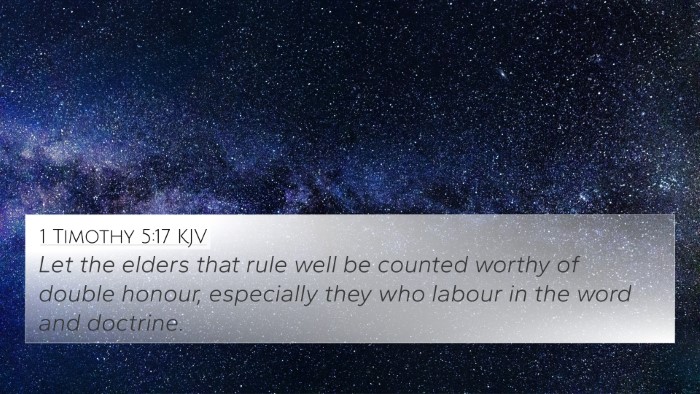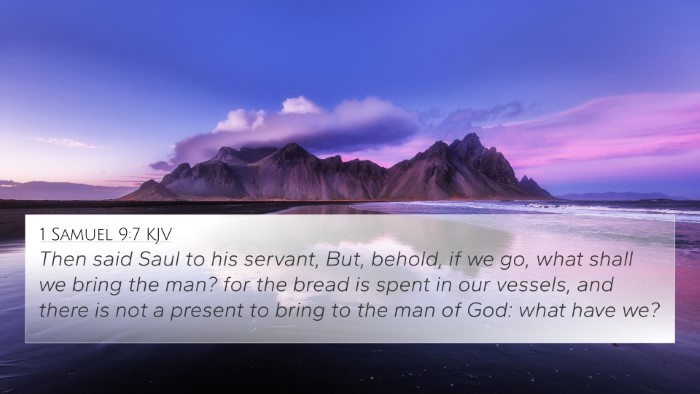Understanding Matthew 10:10
Matthew 10:10 states, "Nor bag for your journey, neither two coats, neither shoes, nor yet staves: for the workman is worthy of his meat." This verse is part of Jesus' instructions to His disciples as He sends them out to preach and heal. It emphasizes the principle of dependence on God and the support of those who receive their ministry. Below, we will explore the meaning and implications of this verse through insights gathered from public domain commentaries.
Contextual Overview
The context of Matthew 10 is critical for understanding this verse. Jesus is preparing His disciples for a mission to spread the Gospel and perform miracles. He instructs them on how to conduct themselves and trust in God for their needs. The verse highlights the necessity of faith and reliance on the hospitality of those who believe in their message.
Commentary Insights
-
Matthew Henry's Commentary:
Henry interprets this verse as a lesson in simplicity and faith. He notes that the command to take no extra possessions signifies the importance of trusting in God’s provision. The phrase "for the workman is worthy of his meat" emphasizes that those engaged in spiritual work should receive support for their labor, echoing principles found in later scriptures about the pastoral support.
-
Albert Barnes' Notes:
Barnes elaborates on the concept of the 'workman' deserving of his support, linking this to the Jewish tradition of compensating those who work in the temple. The notion that the disciples should not burden themselves with excess indicates a focused mission, where reliance on God and the kindness of others is fundamental.
-
Adam Clarke's Commentary:
Clarke points out that Jesus' instruction aims to remove distractions from the mission at hand. He discusses the significance of 'shoes' and 'staff,' relating it to physical preparation yet underlining that the disciples' spiritual journey and the message of salvation are paramount.
Bible Verse Cross-References
Matthew 10:10 can be cross-referenced with several other scripture passages that illuminate its meaning and provide further context. Here are some notable connections:
- Luke 10:7: "And in the same house remain, eating and drinking such things as they give: for the labourer is worthy of his hire." Similar emphasis on the support of those who preach.
- 1 Timothy 5:18: "For the scripture saith, Thou shalt not muzzle the ox that treadeth out the corn. And, The labourer is worthy of his reward." Reinforces the principle of pastoral compensation.
- Matthew 6:25: "Therefore I say unto you, Take no thought for your life, what ye shall eat, or what ye shall drink." Highlights the dependence on God.
- Philippians 4:19: "But my God shall supply all your need according to his riches in glory by Christ Jesus." Encourages belief in divine provision.
- Acts 20:35: "It is more blessed to give than to receive." Connects to the principle of laborers being supported by their community.
- 1 Corinthians 9:14: "Even so hath the Lord ordained that they which preach the gospel should live of the gospel." Directly relates to the value of supporting those in ministry.
- Matthew 9:38: "Pray ye therefore the Lord of the harvest, that he will send forth labourers into his harvest." Calls for support for missionary work.
Thematic Connections
This verse highlights several themes prevalent in the New Testament:
- Faith and Dependence: Disciples are encouraged to trust in God for their needs.
- Ministry and Service: The call to preach requires the support of the community.
- Simplicity and Focus: Removal of distractions allows for a clearer mission.
- Community Support: Emphasizes the importance of hospitality and provision within the body of Christ.
Tools for Bible Cross-Referencing
To delve further into the interconnectedness of scripture, several tools can be employed:
-
Bible Concordance: A useful resource for finding specific verses and their occurrences across the Bible.
-
Bible Cross-Reference Guide: Guides that provide lists of related verses for deeper study and understanding.
-
Cross-Reference Bible Study: Methods that involve examining the links between various scriptures to extract fuller meanings.
Conclusion
Matthew 10:10 serves as a powerful reminder of the disciples' ethos of reliance on God, the importance of community support for ministry, and the simplicity of faith. Through the cross-referencing of this verse with others, we see a rich tapestry of biblical principles that encourage and challenge believers to understand their own roles in the divine mission.










